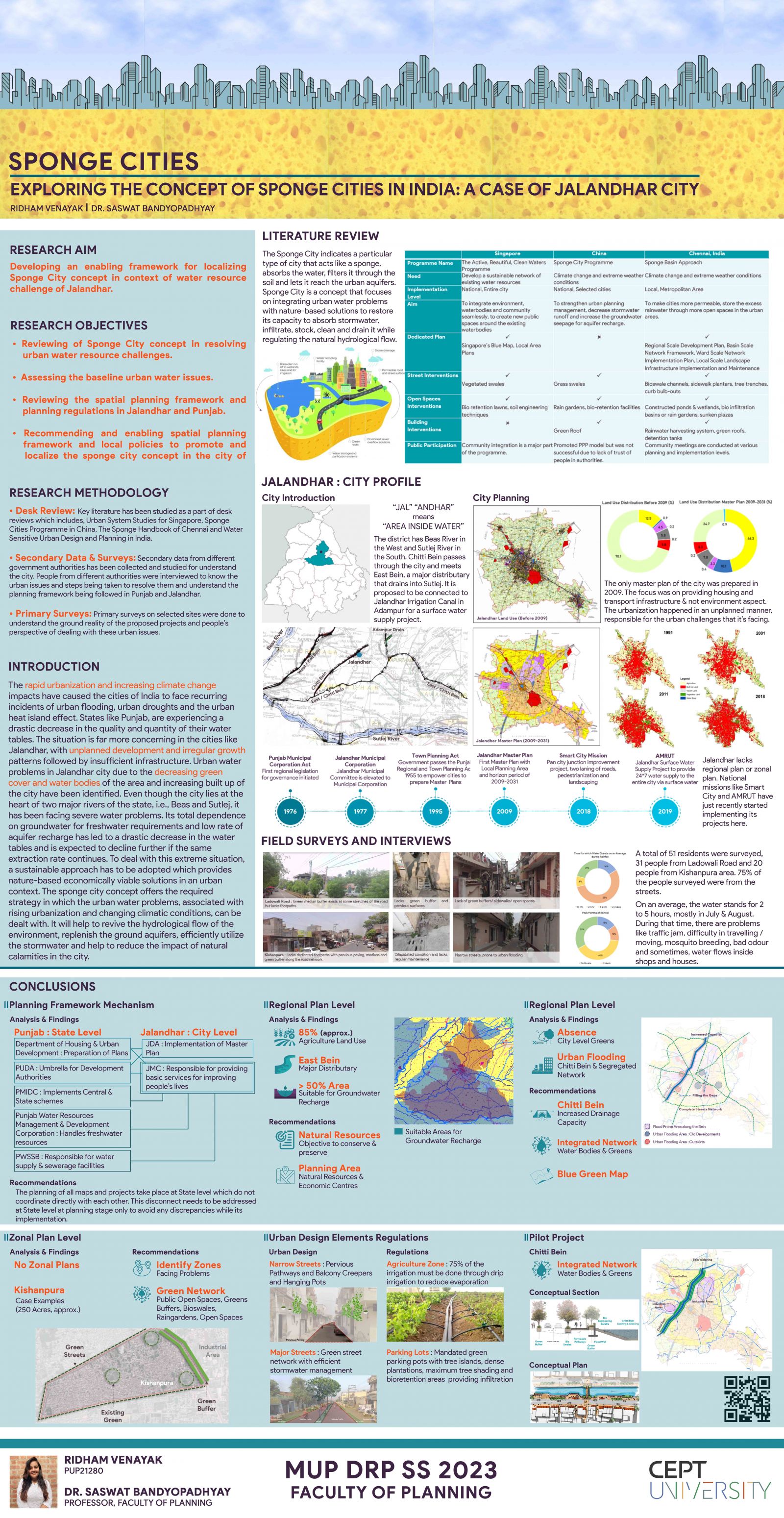Your browser is out-of-date!
For a richer surfing experience on our website, please update your browser. Update my browser now!
For a richer surfing experience on our website, please update your browser. Update my browser now!
The rapid urbanization and increasing climate change impacts have caused the cities of India to face recurring incidents of urban flooding, urban droughts and urban heat island effect. States like Punjab, are experiencing a drastic decrease in the quality and quantity of their water tables. The situation is far more concerning in the cities like Jalandhar, with unplanned development and irregular growth patterns followed by insufficient infrastructure. Urban water problems in Jalandhar city due to the decreasing green cover and water bodies of the area and increasing dense built up of the city have been identified. Even though the city lies at the heart of two major rivers of the state, i.e., Beas and Sutlej, it has been facing severe water problems. To deal with this extreme situation, a sustainable approach has to be adopted which provides nature-based economically viable solutions in an urban context. The sponge city concept offers the required strategy in which the urban water problems, associated with rising urbanization and changing climatic conditions, can be dealt with. This will help to revive the hydrological flow of the environment, replenish the groundwater aquifers, efficiently utilize the stormwater and help to reduce the impact of natural calamities in the city. The research paper aims to develop an enabling framework for localizing the Sponge City concept in the context of the water resource challenges of Jalandhar. To achieve this aim, four objectives have been identified, review the sponge city concept to resolve urban water resource challenges, assess the baseline urban water issues, review the spatial planning framework and planning regulations of Jalandhar and recommend planning framework and local policies to localize the concept in the city. Executive Summary
